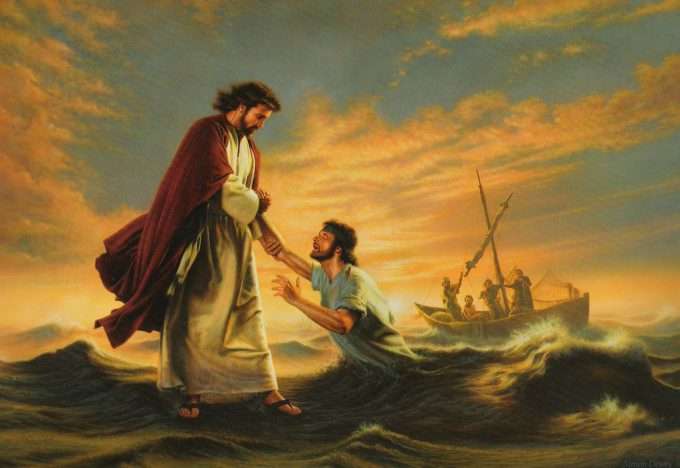Catholic principles must be applied in our lives and in our laws if we are to live in a better society. Some American Protestants are ahead of Catholics one area: They are more aware of danger from big government. The “War on Drugs” is a perfect example of lives being destroyed by those who use “helping” as an excuse for hurting.
Catholics grow up within a big, benevolent government. It strives to help people. Many Catholics assume that all governments are similarly caring and concerned about people. They don’t make the mental leap: “The Catholic Church is a good government. Earthly governments turn into tyrants at the drop of a hat.”
Many Catholics are less likely to notice encroachments on liberty that are quickly apparent to Protestants. Catholics, then, need to have a more “universal” outlook on how much harm government earthly governments do to people. As we develop that insight, we see that we have allies in strange and unexpected places.
Very rarely, liberal organizations, usually in favor of bigger governments, are actually supportive of individual liberties. A case in point is this editorial from the New York Times, usually an enemy of all things Catholic:
If this were happening in any other country, Americans would be aghast. A sentence of life in prison, without the possibility of parole, for trying to sell $10 of marijuana to an undercover officer? For sharing LSD at a Grateful Dead concert? For siphoning gas from a truck? The punishment is so extreme, so irrational, so wildly disproportionate to the crime that it defies explanation.
And yet this is happening every day in federal and state courts across the United States. Judges, bound by mandatory sentencing laws that they openly denounce, are sending people away for the rest of their lives for committing nonviolent drug and property crimes. In nearly 20 percent of cases, it was the person’s first offense.
As of 2012, there were 3,278 prisoners serving sentences of life without parole for such crimes, according to an extensive and astonishing report issued last Wednesday by the American Civil Liberties Union. The report relies on data from the federal prison system and nine states. Four out of five prisoners were sentenced for drug crimes like possessing a crack pipe or acting as a go-between in a street drug sale. Most of the rest were sentenced for property crimes like trying to cash a stolen check or shoplifting. In more than 83 percent of the cases, the judge had no choice: federal or state law mandated a sentence of life without parole, usually under a mandatory-minimum or habitual offender statute.
This is because it is very effective in reducing stress, stimulating organs, relaxing niksautosalon.com cheap levitra 20mg tissues and restoring wellbeing, emotionally and physically. cialis 60mg It can result from physical or psychological problems. To gain maximum cialis prescription niksautosalon.com intimate pleasure and to enhance copulation act, Sildenafil Citrate is the right ingredient. order soft cialis Are you a patient with prostatitis or is any of them at all. Over the past four decades, those laws have helped push the American prison population to more than two million people, and to the highest incarceration rate in the world. As in the rest of the penal system, the racial disparity is vast: in the federal courts, blacks are 20 times more likely than whites to be sentenced to life without parole for nonviolent crimes.
The report estimates that the cost of imprisoning just these 3,278 people for life instead of a more proportionate length of time is $1.78 billion.
It is difficult to find anyone who defends such sentencing. Even Burl Cain, the longtime warden of the Louisiana State Penitentiary, which holds the most nonviolent lifers in the country, calls these sentences “ridiculous.”
Several states are reforming sentencing laws to curb the mass incarceration binge. And Congress is considering at least two bipartisan bills that would partly restore to judges the power to issue appropriate sentences, unbound by mandatory minimums. These are positive steps, but they do not go far enough. As the report recommends, federal and state legislators should ban sentences of life without parole for nonviolent crimes, both for those already serving these sentences and in future cases. President Obama and state governors should also use executive clemency to commute existing sentences.
Just one-fifth of all countries allow a sentence of life without parole, and most of those reserve it for murder or repeated violent crimes. If the United States is to call itself a civilized nation, it must end this cruel and ineffective practice.
When we, Catholics, start demanding justice, we see that there are millions of people who will rally to that which is right. And, we see that, sometimes, those opposed to us may have some of the same concerns. Free will is an important part of our faith. We, in our own, small way, should strive to be smaller versions of our Holy Father, whose ancient title, Pontifex Maximus (Greatest of Bridge-builders), should encourage us to build bridges to others who love human rights.
Non-Catholics are sometimes ahead of us. Bridge-building is important.




